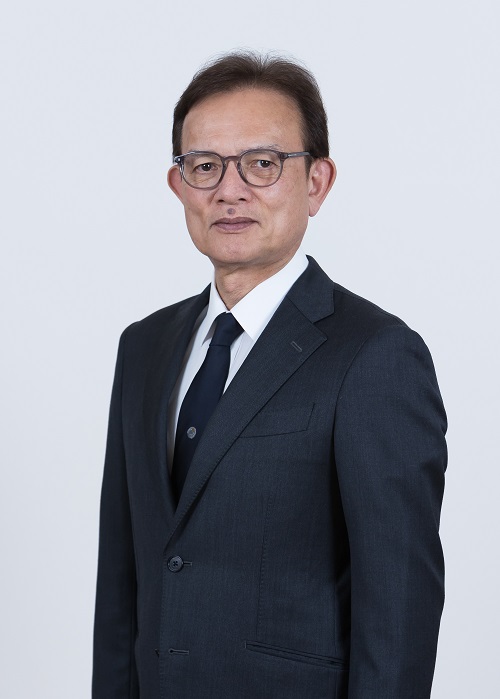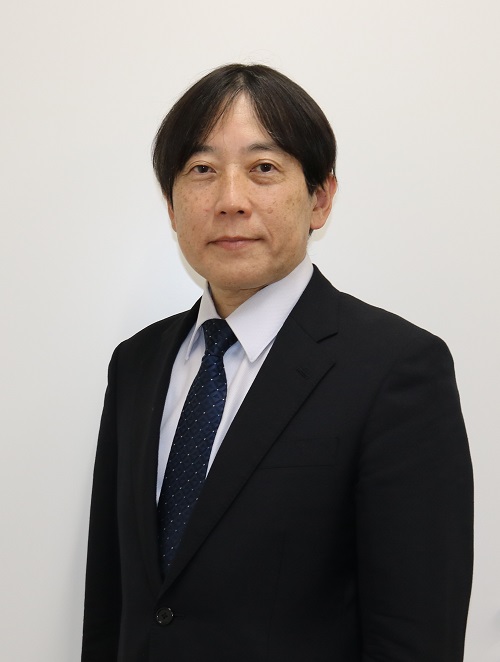Message from Director
ADACHI Nobuo
Director
Offering Advanced and Safe Medical Care Close to Patients
Hiroshima University Hospital is a medical facility with a long history that has its roots in Hiroshima Prefectural Medical School and an attached clinic, which were established in 1945. More recently, Hiroshima University Hospital and Hiroshima University Dental Hospital were merged in 2003 to form the present-day Hiroshima University Hospital. As one of the leading medical institutions in Japan in terms of the linkage of medical and dental departments, it has for many years offered advanced and safe medical care not only to residents in Hiroshima Prefecture but also to people in the surrounding area. Hiroshima University Hospital upholds the mission of “Provide holistic and integrated medical care,” “Foster superior medical experts,” and “Pursue new medical innovations” in order to improve the health and welfare of the people.
Provide holistic and integrated medical care
Holistic and integrated medical care aims to explore the patient’s own comprehensive health and well-being, including not only the treatment of physical disorders but also psychological and social aspects. This includes lifestyle improvement and disease prevention, psychological support, and social support as well as the treatment of disorders, which means following a comprehensive approach to improving, maintaining, and promoting the patient’s health.
Hiroshima University Hospital is an advanced treatment hospital that provides advanced and safe medical care. It has also been designated as a core hospital for cancer treatment collaboration, a core hospital for the treatment of pediatric cancers, a hospital for Cancer Genome Medicine, and a hospital for supporting people with epilepsy, promoting various cutting-edge treatments. It has also greatly contributed to regional medical care as a hospital responsible for advanced acute care in collaboration with local family physicians and many medical institutions. In today’s medical settings, as more complex and advanced medical care, such as robotic surgery, clinical applications of regenerative medicine, and cancer genome medicine, are promoted, medical safety and ethics are becoming increasingly important. At our hospital, we have built a medical safety management system made up of people from different professions to provide safe medical care and educate our staff. We will continue to be rooted in the local community and strive to realize safe and secure acute care so that we can serve a wide range of patients.
Foster superior medical experts
Hiroshima University’s Kasumi Campus, where Hiroshima University Hospital is located, is a medical campus complex that includes the Program of Medicine of the School of Medicine, the Program of Health Sciences of the School of Medicine, the School of Dentistry, the School of Pharmaceutical Sciences, and the Research Institute for Radiation Biology and Medicine, thereby serving as a place to foster interprofessional medical experts. Hiroshima University Hospital has an organic educational system in place in which each department collaborates to foster interprofessional medical experts who are knowledgeable about holistic and integrated medical care and medical safety. It produces many medical experts every year and contributes to regional medical care.
Pursue new medical innovations
As medicine and medical care progress day by day, it is also the important mission of university hospitals to develop new medical treatments and safely deliver them to patients. Hiroshima University Hospital uses the collective strength of the Hiroshima University’s Kasumi Campus, which is a comprehensive medical campus, to conduct high-quality clinical research with the aim of developing advanced and innovative drugs, medical devices, and medical technology. The Clinical Research Center in Hiroshima provides support for promoting clinical research and clinical trials while protecting the human rights of trial subjects. Regenerative medicine approaches that use cells, growth factors, drugs, and medical devices have recently been developed, and some of them have already been applied clinically. The Medical Center for Translational and Clinical Research at Hiroshima University Hospital supports the development, research, and clinical application of such regenerative medicine approaches. We will continue to promote highly advanced medical care while paying due consideration to safety and ethics.
Lastly, Hiroshima University Hospital will continue to offer safe, secure, and highly advanced medical care while staying close to patients and contributing to the local community through the sincere and dedicated efforts of all our staff. We ask for your continued support, cooperation, and understanding.

Message from Chief Deputy Director
TANIMOTO Kotaro
Chief Deputy Director
Aiming to Offer High-Quality Dental Care That Values Each Individual as a Focal Point of the Community Dental Care Delivery System
The Hiroshima University Hospital’s dentistry department was established in 1967 as Hiroshima University Dental Hospital. In 2003, Hiroshima University Hospital and Hiroshima University Dental Hospital were merged into one hospital, and under the same mission, it has been responsible for the practice of regional medical care related to dentistry, the development of human resources, and research and development of highly advanced medical care. The Dental Department at Hiroshima University Hospital provides a full range of specialized dental care, in addition to standard care, in order to contribute to the health of people in all life stages, from infants to the elderly. In order for everyone to receive dental care with peace of mind, medical safety and infection control are prerequisites. To maintain these at a high level, we will continue to make improvements on a daily basis and strive to make our efforts easy to understand for those who visit our hospital so that we can earn their trust.
At our hospital, we focus on preventing the aggravation of dental-related diseases and promoting collaboration in the community-based integrated care system. As an approach to the former initiative, we provide integrated oral and nutritional management, mainly for hospitalized patients, to prevent aspiration pneumonia and malnutrition and quickly restore oral function through close collaboration, including medical and dental collaboration. As a new initiative related to this, the Innovative Hospital Oral Care Project Center was established in 2022. We have also opened the Innovation & Precision Dentistry Laboratory to further strengthen the research and development of highly advanced medical treatments such as regenerative medicine. For the latter initiative, collaboration in the community-based integrated care system, the key is to take measures based on regional circumstances. In our region, based on the belief that it is important to maintain dental and oral health throughout life in order to live a healthy and lively life, the following issues are taken up: “response to periodontal disease,” “enhancing home dental care,” “response to children (adults) with disabilities and those requiring care,” and “relationship between the oral cavity and the whole body.” Our hospital participates in efforts to deal with any of these issues in cooperation with the government, dental clinics, and other organizations, contributing to the creation of a community inclusive society where people with disabilities and incurable diseases can live with peace of mind.
In order to realize such a society, fostering medical experts is one of the important roles that university hospitals, which are the foundation of community dental care delivery systems, should play. We are required to respond to the shortage of highly specialized dentists, dental hygienists, and dental technicians while increasing opportunities to learn about the importance of oral care. To this end, we provide postgraduate training that is connected to undergraduate education, and at the hospital, we offer opportunities for dental personnel to interact with other professions through activities such as the creation of care plans related to nutrition, ambulation/rehabilitation, and oral cavity so that they can fulfill their respective roles in team medical care.
We will continue to strive to provide high-quality medical care, and we appreciate your continued understanding and support.


 Home
Home